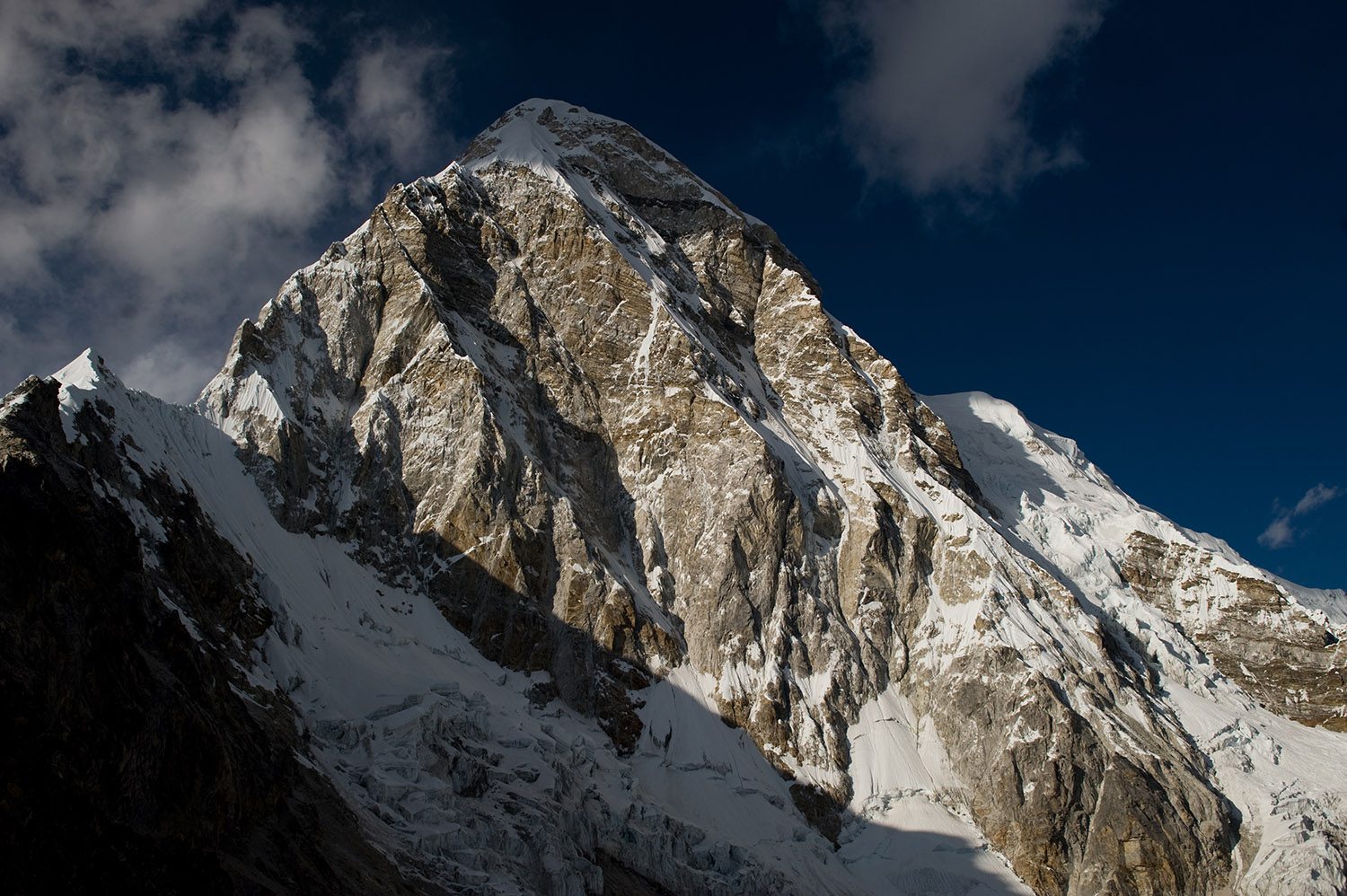This site uses cookies, as explained in our terms of use. If you consent, please close this message and continue to use this site.
 Photo: Alex Treadway/ICIMOD.
Photo: Alex Treadway/ICIMOD.
—
Kathmandu, Nepal (29 May 2023) – Today, 70 years after Sir Edmund Hillary and Tenzing Norgay first scaled Mount Everest, the Earth’s tallest mountain is undergoing unprecedented and largely irreversible change caused by global warming.
Global temperature rises are jeopardising the environment of Everest and the Hindu Kush Himalaya (HKH) region, which extends 3,500 km across eight countries. In the next 70 years, under the current emissions scenario, scientists project that two-thirds of glaciers in the region will disappear.
The International Centre for Integrated Mountain Development (ICIMOD), supported by mountain institutes globally, including Nepal Mountaineering Association and the Mountain Partnership (the United Nations voluntary alliance of partners), is calling on members of the public to back the #SaveOurSnow campaign. The campaign asks the public to:
The 79 glaciers surrounding Everest have thinned by over 100 metres in just six decades, and the thinning rate has nearly doubled since 2009. Among those is the iconic Khumbu glacier, the starting place for most expeditions, including Hillary and Tenzing Norgay’s all those decades ago, which scientists say is just degrees away from some vanishing.
The HKH region is seeing an increase in adverse impacts from climate change, which will only increase in intensity and frequency. Pema Gyamtsho, ICIMOD Director General, said: “The dangerous impacts of global warming are already being felt throughout the Hindu Kush Himalaya in record-breaking heat waves, droughts, natural disasters, unpredictable snowfall, and precipitous and largely irreversible glacial melt. We need urgent global action to protect the lives and livelihoods of the two billion people in this region and to safeguard the countless, irreplaceable lifeforms that exist only here.”
The HKH is home to 240 million people, and nearly a quarter of the world’s population depends on the water that flows from its mountains. The fight against climate change is therefore critically important and requires urgent global action.
Kilian Jornet, a world-leading endurance athlete and ski mountaineer, said: “Everest is changing, fast. Over the years, I have witnessed with my own eyes how the mountains are being affected by climate change at unprecedented speed. The melting of glaciers is making mountains more dangerous for climbers, and more importantly, it’s jeopardising the lives of the billions of people depending on its resources.”
1,000 people signed ICIMOD’s Save Our Snow declaration in the first 48 hours of its launch. The declaration calls on Governments to honour their commitments under the Paris Agreement, make rapid and deep emission cuts, end all new coal, oil and gas exploration, and accelerate the transition to renewable energy.
Signatories include Rt Hon Helen Clark, former Prime Minister of New Zealand, Renate Christ, former Chair of the International Panel for Climate Change, legendary climber Reinhold Messner, descendants of Norgay and Hillary, Samuel Sidiqi, the first Afghan to summit Everest, Naila Kiani, the first Pakistani woman to summit six 8,000+meter mountains and Jornet, and hundreds of earth scientists from the Hindu Kush Himalaya region.
The Save Our Snow campaign comes at the start of the United Nations’ ‘Five Years of Action for the Development of Mountain Regions’, which was declared in a resolution co-sponsored by 110 Governments and in recognition of the importance of protecting mountain people and environments from climate change and other ongoing global challenges.
More information on the #SaveOurSnow campaign and declaration can be found on ICIMOD’s website: www.icimod.org/saveoursnow
###
Notes to editors
Photos, b-roll, and spokespeople are available on request email: annie.dare@icimod.org
Additional quotes from spokespeople
Tenzing Chogyal Sherpa, ICIMOD glaciologist and grandson of Kanchha Sherpa, the last remaining survivor of the first expedition, said: “Those of us who study, live or climb in the mountains are eyewitnesses to the terrifying speed of changes happening in our cryosphere – often caused by actions taken millions of miles away. We are calling on everyone that loves these fragile places to raise their voice about the impacts of continued inaction on emissions reductions and to call for world leaders and businesses to speed up the transition to renewables to save our snow.”
Dr Carolina Adler, Executive Director, Mountain Research Initiative (MRI), said: “As we commemorate the 70th anniversary of the first ascent to Mount Everest, we are also reminded about the great heights we still need to scale when it comes to addressing climate change. On behalf of the Mountain Research Initiative (MRI), we strongly support the urgent plea from mountain communities, climbers, and scientists for immediate global action to address climate change. We encourage our mountain research community to join us in amplifying the effort by signing the declaration and sharing first-hand stories showcasing the transformations in our changing mountains. Let’s support the call to protect Earth’s mountains, snow, and ice.”
Rosalaura Romeo, Coordinator, Mountain Partnership Secretariat, said: “The next five years, 2023–2027, have been declared by the United Nations as Five Years of Action for the Development of Mountain Regions. Now is the time for members and allies of the Mountain Partnership across regions, from governments to communities and civil society organisations, to come together to conserve mountain ecosystems to safeguard the future of people and the planet.”
About ICIMOD
The International Centre for Integrated Mountain Development (ICIMOD), based in Kathmandu, is the leading institute for the study of the Hindu Kush Himalaya. An intergovernmental knowledge and development organisation with a focus on climate and environmental risks, green economies and sustainable action, it works in and for its eight regional member countries – Afghanistan, Bangladesh, Bhutan, China, India, Myanmar, Nepal, and Pakistan.
Media contact
Kathmandu
London
Rome